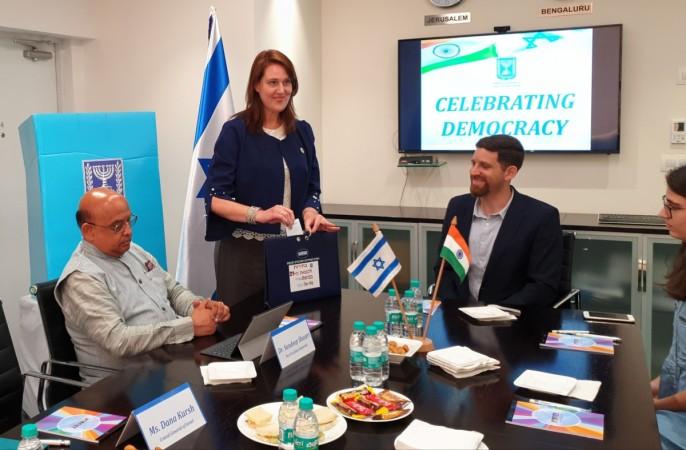
India and Israel are heading towards elections in April and May. Israeli diplomats voted on Friday, March 29, at the Israeli diplomatic missions around the world. The ballots from the Israeli missions will be sent to Jerusalem, where they will be securely stored and opened to be counted during the general elections in the country on April 9.
The Consulate General of Israel to South India seized this opportunity to call out to citizens of both countries to execute their democratic right and go out to vote. The diplomats expressed their feeling that they have a responsibility towards their home country as well as their host country to create awareness to the importance of voting and have the public actively participate in the democracy.
A panel discussion was held at the Israeli Consulate in Bengaluru with the participation of Dana Kursh, Consul General of Israel to South India, Dr. Sandeep Shastri, Professor at Jain University and Political scientist, and BPAC CEO Revathy Ashok. The panel discussed the similarities and differences of both the democratic systems; two democratic countries in rough neighbourhoods, facing many of the same threats and challenges, and yet, thriving and flourishing. They also discussed trends of political parties, election processes, and effects of social media on the election campaign in both countries.
About Knesset elections 2019: Watch this short video for a quick overview.
The single-chamber Knesset sits in Jerusalem. It has 120 members, who are elected to a four-year term. During its term, the Knesset may dissolve itself, leading to a new election. The total of 63,39,279 Israeli voters will vote on April 9 and they have 42 political parties contesting in this election. 11,000 ballot boxes across Israel, with 83 in prisons and 100 in hospitals lets the voters, vote on April 9.
There is a rise in the number of young voters and young leaders actively participating in politics to decide the future of Israel. There were 33 women members in the last Knesset, which makes up to 28.33 per cent of the total representation.
Dana Kursh, the Consulate General of Israel to South India, said, "it is a privilege belonging to a democratic nation, and having the right, and the duty, to shape our future. I call all citizens of these two great nations to go out and vote."
Sandeep Shastri, the Professor at Jain University and political scientist, said, "We today celebrate the success of two vibrant democracies, India and Israel that vary in terms of the numbers that make up their respective electorates but are similar in terms of citizen aspirations from their democracy and the electoral process. In both countries, the citizens have a deep and abiding faith in the democratic process. Elections provide a moment for citizens to assert their right as active participants in the experiment called democracy."

















